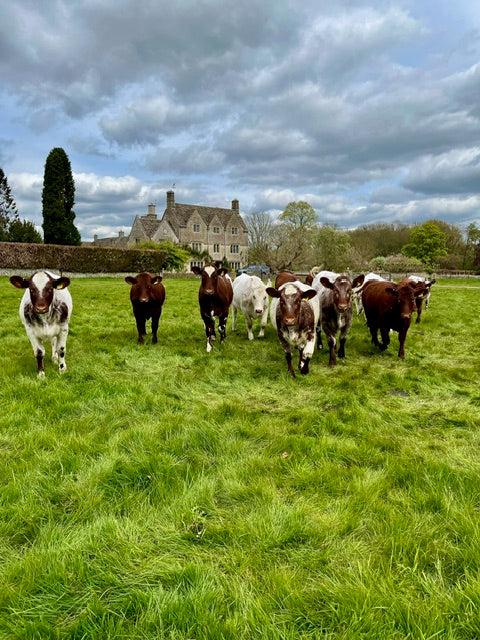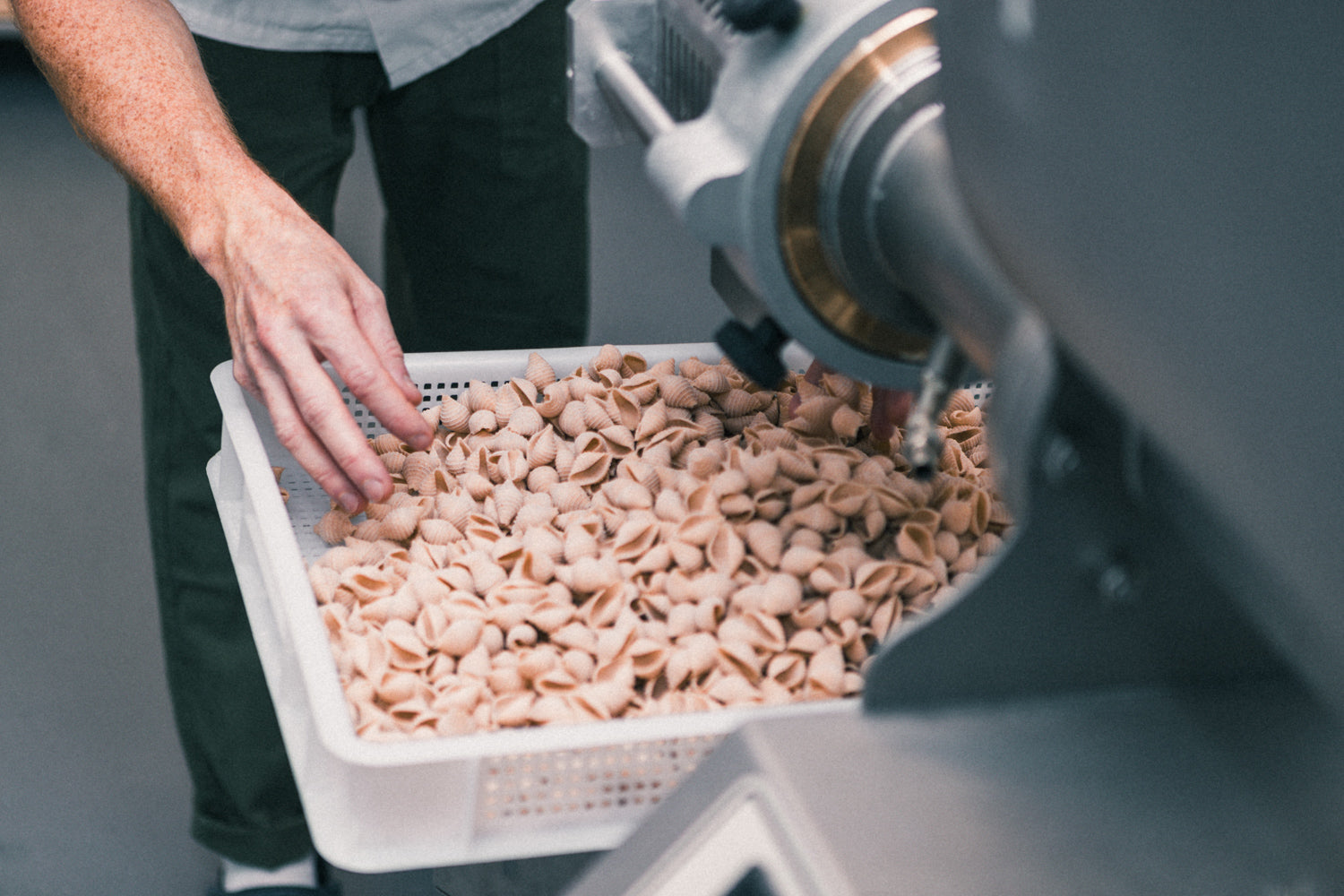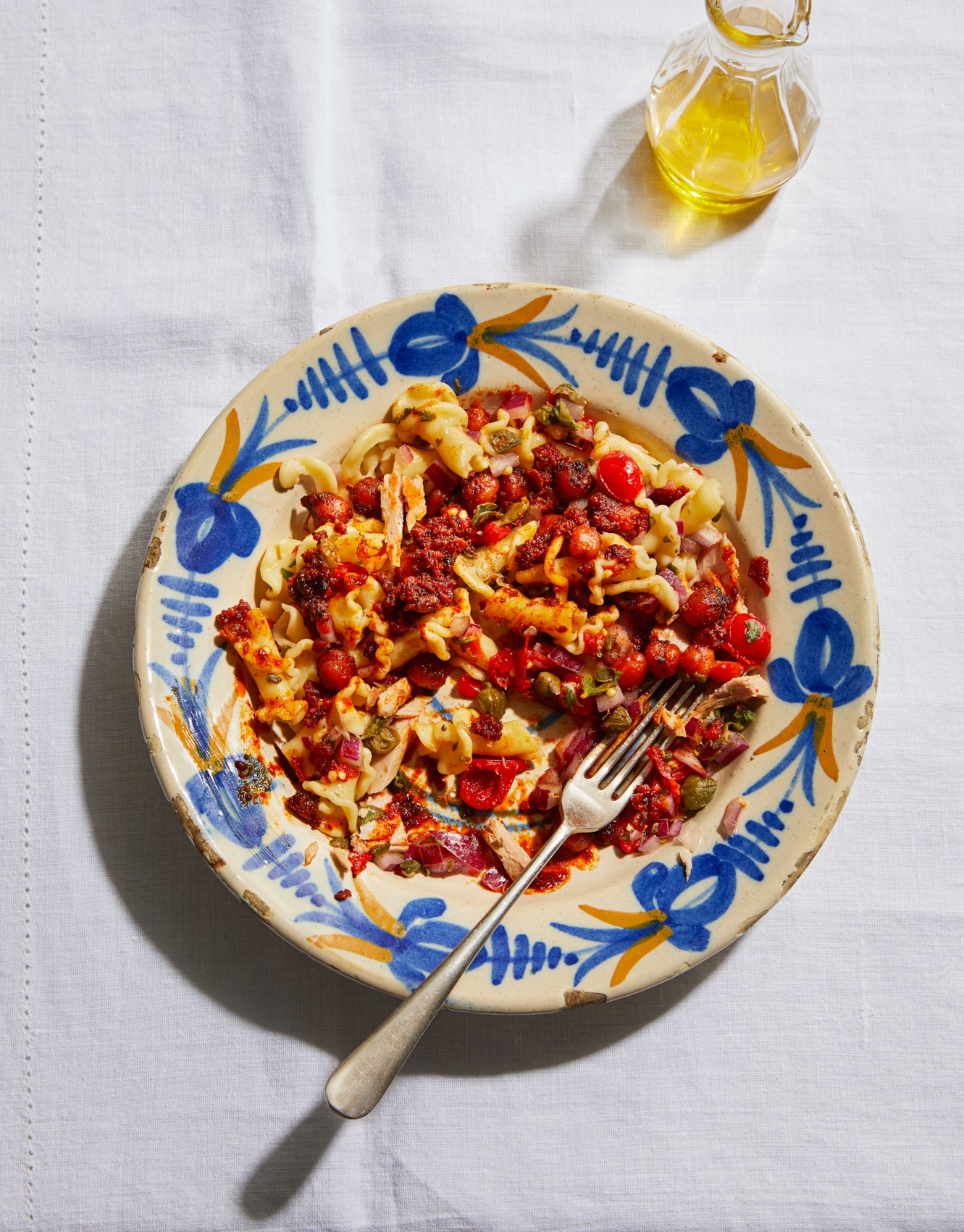At Northern Pasta, we're passionate about supporting British farmers, flying the flag for regeneratively grown ancient grains, like our spelt, and being really transparent about the journey from field to fork.
In an effort to share this with you, our community, we have created a new content segment, in partnership with our farmer Ed Horton, where once a month, we'll be checking in, so you can learn more about where your food comes from, the unique approach Ed has to his work, and the highs and lows of working with the British weather!
This content piece is shared with a nod to our brilliant team we work with at Matthew's Cotswold Flour, with a special thanks to Bertie for helping us create Northern Pasta.
April on the farm
As we head out of April and into May spring has stared to show its face. After one of the wettest winters in history, we reached half our average annual rainfall amount on the 3rd of April with 482mm of rain falling between 1st January and 3rd of April. This has had a huge effect on farms up and down the country. Winter sown crops have struggled with water logging and flooding damage as well as huge swathes of land being completely devoid of crops, either having lost them to the seed rotting in the ground or not being able to plant them at all.
As the days get longer and the soils start to warm up we can make a start on repairing some of the damage left by the winter and begin sowing spring crops. Malting barley destined for Heineken, milling oats for Jordan’s cereals and peas for human consumption are all being planted at the moment.
The spelt destined for Northern Pasta Co was planted in the autumn and has managed to weather the winter well. Thanks to being an ancient grain it has much more tolerance of adverse weather than modern varieties of wheat.
In early March we grazed the spelt with part of our sheep flock, we do this to remove the leaves that have taken in fungal diseases such as yellow rust over the winter. The sheep eat all the leaves off the plant, removing the disease mechanically allowing it to enter the spring free from fungal infection. Fungal diseases like yellow rust can run riot through cereal crops, the disease causes the plant cells to burst open and decay meaning the plants become weak and cannot photosynthesise properly leading to much reduced yields and poor quality grain. Not only does this practice allow us to fatten sheep off arable crops it also means we can grow cereal crops without the use of artificial fungicides to control these diseases.
The spelt along with all the other winter cereal crops we grow like milling wheat, barley, oats, rye have had a dose of pig manure applied to them to feed them with nutrients for the upcoming season. The pig slurry is pumped from our lagoons through pipes and applied to the field through a boom. The slurry provides the crops with nitrogen, sulphur, phosphate, potassium, iron, copper, boron, zinc, molybdenum and a host of other trace elements that are vital to crop growth and health, by using manure from livestock instead of artificially produced nitrogen we reduce our carbon footprint, make good use of a waste product and protect our soil health from the damaging effects of artificially produced nitrogen products.
On the livestock side of the farm the cattle have been turned out to pasture for the summer after being housed indoors over the winter months and the freshly lambed ewes are enjoying some spring grass growth with their lambs.
If you have a question for Ed, please feel free to drop us an email, we look forward to hearing from Ed again at the end of May for our next segment of diaries from the farm.



